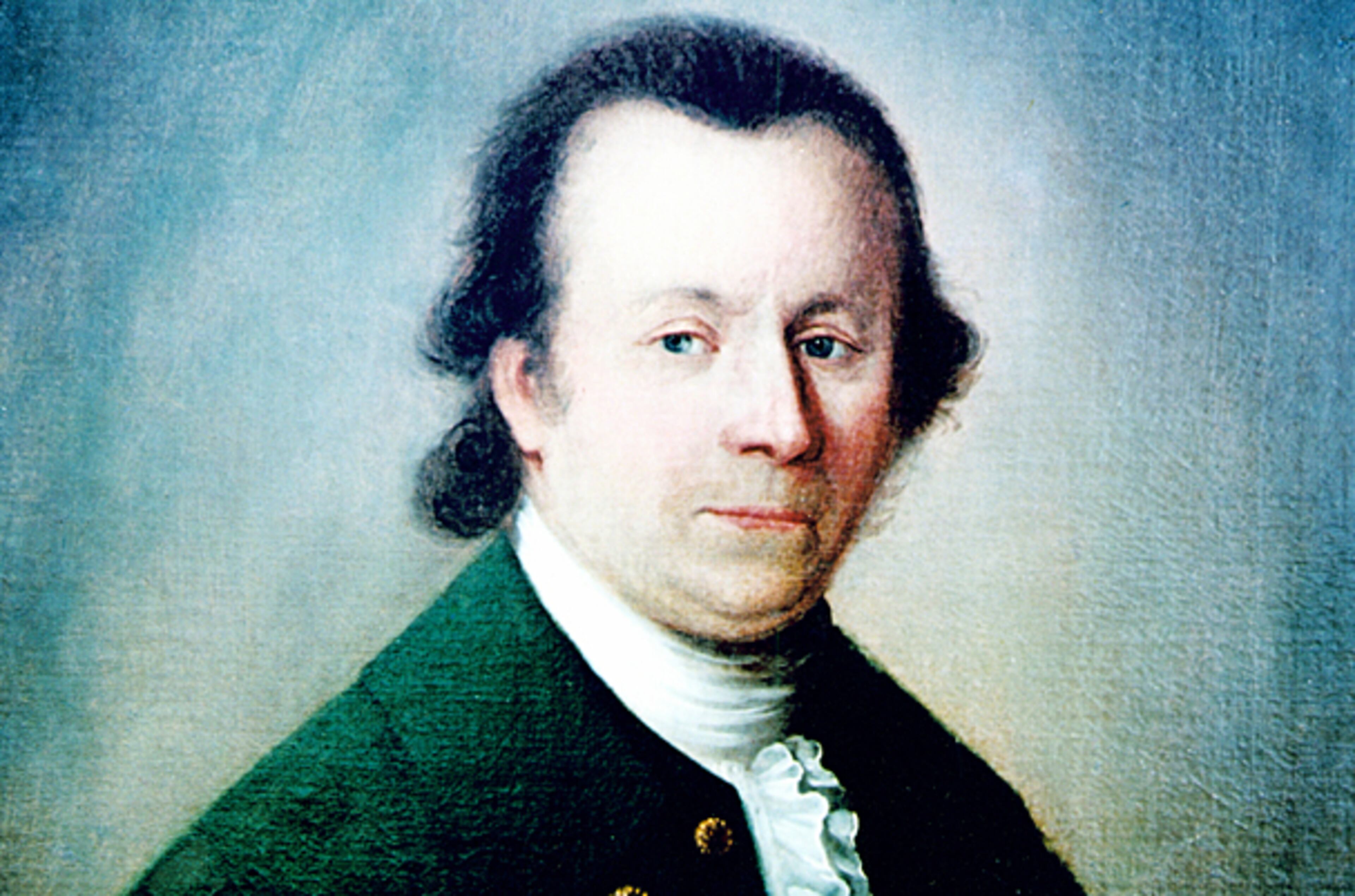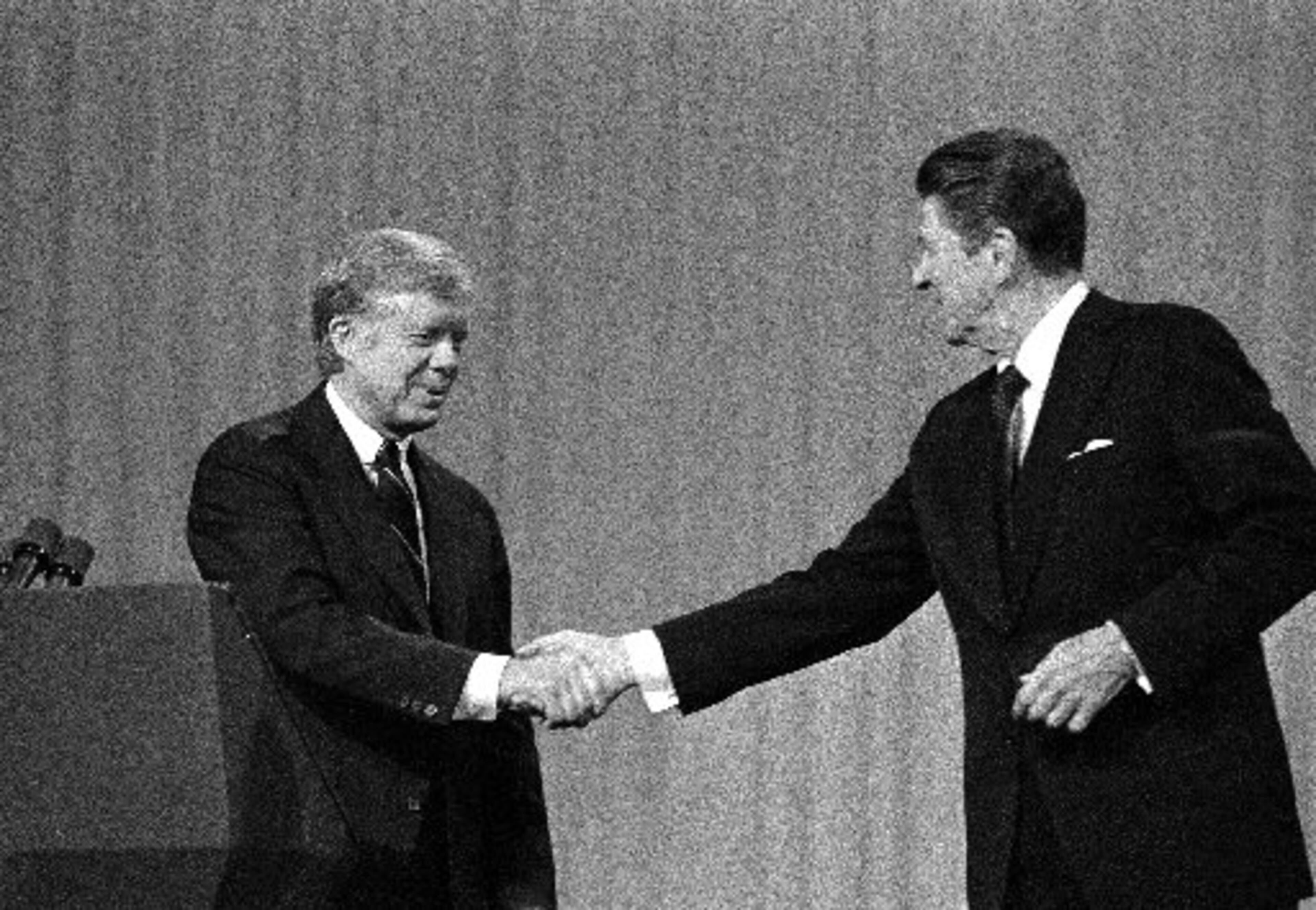Things to Do
Flashback photos: 200+ years of Georgia politicians

Eugene Talmadge served three terms as state commissioner of agriculture and three terms as governor. He was elected to a fourth term in 1946 but died before taking office. Photo: New Georgia Encyclopedia.
Happy Election Day eve! If you've had enough of politics circa 2016, here's a look back at some of Georgia's public servants over the centuries.

James Oglethorpe, (1696-1785), was colonial leader of Georgia.

James Wright, the last royal governor of Georgia, served from 1760 to 1782. Born in London, he died in 1785 and was buried in Westminster Abbey. Photo and capsule: New Georgia Encyclopedia.

Rufus Bullock (1834-1907) was Georgia's first Republican governor (1868-71) and a staunch supporter of African American equality. Photo: Library of Congress.

Button Gwinnett signed the Declaration of Independence, briefly served as provisional governor of Georgia and was killed in a duel. Photo: Georgia Historical Society.

Rebecca Ann Latimer Felton (1835-1930) was the first woman to serve in the United States Senate and remains the only woman to have served as a U.S. Senator from Georgia. She was appointed to the office as political stunt. Gov. Thomas Hardwick appointed her after the death of Sen. Thomas E. Watson died on Sept.26, 1922; Hardwick sought the seat for himself and thought appointing the 87 year-old Felton would endear him to newly enfranchised women voters. Felton served for just 24 hours. Hardwick lost in a special election two weeks later to Walter F. George.

Eugene Talmadge served three terms as state commissioner of agriculture and three terms as governor. He was elected to a fourth term in 1946 but died before taking office. Photo: New Georgia Encyclopedia.

Herman Talmadge, son of Eugene Talmadge, served as governor of Georgia Herman Talmadge, son of Georgia governor Eugene Talmadge, took the governor's office briefly in 1947, and again after a special election in 1948. Herman Talmadge for a brief time in early 1947 and again from 1948 to 1954. In 1956 Talmadge was elected to the U.S. Senate, where he served until his defeat in 1980. Photo and capsule: New Georgia Encyclopedia.

Civil rights heroes U.S. Rep. John Lewis with former Atlanta Mayor and UN Ambassador Andrew Young on Dec. 23, 1976. AJC file photo

In a more recent photo, John Lewis and Andrew Young review a collection of artwork at the Martin Luther King Jr. Federal Building in Atlanta with US General Services Administrator Martha Johnson. Photo: GSA

Lester Maddox (1915-2003) was a colorful and complex governor. A segregationist who refused to order flags at state facilities to be lowered after Rev. Martin Luther King Jr. was slain and fought integration, he nevertheless appointed more African Americans to government positions than all previous Georgia governors combined, including the first black officer in the Georgia State Patrol and the first black official to the state Board of Corrections. He was no fan of the media; notice the fish wrapped in an Atlanta newspaper here in his official portrait. Capsule: New Georgia Encyclopedia; photo: leapatshsu.com.

Charles Weltner (1927-1992) was a U.S. congressman from 1963 to 1967. He was the only member of Georgia's congressional delegation to vote for the Civil Rights Act of 1964 and chose not to run for reelection rather than swear allegiance to Gov. Lester Maddox. "I love the Congress, but I will give up my office before I give up my principles," he said in a speech. "I cannot compromise with hate. I cannot vote for Lester Maddox." Today the Georgia First Amendment Foundation gives an annual award in his honor.

Tom Murphy (1924-2007) was Georgia's House Speaker for 28 years, the longest tenure for a Speaker in any state legislature. He served during the terms of five governors: Jimmy Carter, George Busbee, Joe Frank Harris, Zell Miller, and Roy Barnes. Photo and capsule: New Georgia Encyclopedia

A Maynard Jackson mayoral campaign button. Jackson (1938-2003) was elected mayor of Atlanta in 1973, the first African American to serve as mayor of a major southern city. AJC file photo.

Maynard Jackson's family on election night. Jackson family photo.

A vintage Jimmy Carter campaign sign.

Another vintage Jimmy Carter campaign sign.

Then Georgia State Sen. Jimmy Carter hugs his wife, Rosalynn, at his Atlanta campaign headquarters in 1966 after making a strong showing in the Democratic primary election for governor of Georgia. File photo

In this Oct. 28, 1980 file photo, President Jimmy Carter shakes hands with Republican Presidential candidate Ronald Reagan after debating in the Cleveland Music Hall in Cleveland. AP file photo/Madeline Drexler

Roy Barnes was a Democratic legislator for nearly 25 years before serving as governor from 1999 to 2003. Many political observers believe his efforts to change the state flag to minimize Confederate imagery cost him reelection; he was awarded a Profile in Courage Award at the John F. Kennedy Presidential Library & Museum in 2003. File photo Tami Chappell / Special to the AJC

Sam Nunn, co-chair and CEO of the Nuclear Threat Initiative, entered politics as a member of the Georgia House of Representatives in 1968 and served in the U.S. Senate from 1972 to 1996. He continues serving in a public policy capacity as a distinguished professor in the Sam Nunn School of International Affairs at Georgia Tech, chairman emeritus of the board of the Center for Strategic and International Studies in Washington, DC. He’s shown here with his daughter, Michelle Nunn, president and CEO of CARE. She ran for the Senate in 2014; David Perdue prevailed. AJC photo: Jim Galloway

Current Georgia Gov. Nathan Deal, was sworn in as Georgia's 82nd governor on Jan. 10, 2011, in Atlanta. He is pictured with his predecessor, Gov. Sonny Perdue, left, and Georgia secretary of state Brian Kemp. Photo and capsule: georgia.gov.

Shirley Franklin served as Atlanta's mayor from from 2002 to 2010. She was the city's first woman mayor. AJC photo: Hyosub Shin

Eva Galambos, the “founding mother” of Sandy Springs who led the 2005 push for cityhood and served as the new city’s first mayor, died last year at age 87. AJC file photo

Cathy Woolard, the first openly gay elected official in Georgia and the first woman to serve as president of the Atlanta City Council, has announced she'll run for mayor. AJC file photo

Current Atlanta Mayor Kasim Reed with one of his predecessors, Ambassador Andrew Young, at the dedication of a Georgia Historical Marker commemorating the 1996 Summer Olympic Games in Centennial Olympic Park on Nov. 1. AJC photo: Phil Skinner


